"It's Fine!" And Other Lies We Tell Ourselves
The tempo is too slow.
I feel my chest, my shoulders, my ribs compressing in an effort to eke out every last molecule of air before I desperately gasp to repeat the same damn process, with greater effort each time. My larynx must be somewhere between my eyeballs by now, and every rising half step invites greater tension into my jaw. Now my neck. Now my tongue. This isn’t fun at all–expression is dead, I don’t care what the words mean anymore, and the physical pain I feel is matched by the psychic pain of self-judgement. “Damn it, I was supposed to be better than this,” I tell myself. “I should be able to manage this, why does my technique fall apart so easily?” I’m doubting my talent, my intelligence, my musicianship, myself. After two to seven excruciating minutes, the pianist faces me and asks: “Sorry, was that too slow?”
I manage to contort my face into a grin. “No, it’s fine!”
“Okay, do you want to try it again?”
(me, internally: God no please no)
Me, cheerily aloud: “Sure!”
It has been said that “perfect” is the enemy of “good.” I now submit that “fine” is the enemy of “happy.”
I’ve been in this situation too many times. Why I keep singing when I know it isn’t working, I don’t know. It may be that the inconvenience of stopping the pianist feels greater than the discomfort of continuing at a tempo that doesn’t work for me. It may be that I have something to prove to myself in singing the piece at a tempo different from what I practiced. It may be that I don’t believe in my own ability to decide a tempo for my own voice. But whatever the reason, I choose to trade my own “happy” for “fine.” And it never works out for me.
On a societal level, I think we’re pretty well-conditioned to sacrifice our own comfort for someone else’s convenience–for instance, answering “I’m well, how are you?” regardless of how we feel when someone asks us how we’re doing. Enough repetitions of this exercise, and we manage to gaslight ourselves into seeing our own joy as frivolous at best, a sign of weakness at worst. And so we move about our lives as a song plodding about at a tempo too slow, all because we are unwilling to stop and ask ourselves what we might do differently.
But wouldn’t you rather make something beautiful? After all, the only thing certain in life is the double barline; length and form are uncertain, but every song must end. We can traipse through the discomfort and arrive at that double barline with only the relief of ending, or we can luxuriate in every moment, joyfully creating the reality we want to live in.
How do you do it?
Well first, you have to stop.
As any singer who has tried to push the inexorable sixteenth notes of “O del mio dolce ardor” knows, you’re not going to get very far with solving problems until you stop to acknowledge them. There are many ways you can stop–it may be as simple as bringing your attention to the things that bring you discomfort, what Nathaniel Branden in his Six Pillars of Self-Esteem calls “The Practice of Living Consciously.” Maybe it’s an honest conversation with yourself about how your job makes you feel. Maybe it’s a long, hard look at an old habit that isn’t serving you any longer. Whatever it is, “stopping” is about being honest about what’s wrong–or rather, what’s “fine”–and recognizing that feelings of discomfort are not the enemy, but a benevolent voice of advocacy that is trying very, very hard to tell you something about yourself. Stopping is about listening to that voice.
Then you try to give it what it needs. You do that by asking for what you want. In our tempo allegory, it’s as simple as asking the pianist to “think in two.” It gets much harder when the thing that’s “fine” is outside the practice room. It’s incredibly difficult to state your wants and needs with honesty–mostly, because we’d rather believe we don’t have any. We’d rather believe we can handle anything a job throws at us, sacrifice anything for our romantic partners, and remain constantly available to friends and family. We’re very invested in being accommodating; you’d think we derive our sense of personal worth by how much bullshit we can handle before we crack. The irony, though, is that once one overcomes the internal struggle of wondering whether what you need is even worth asking for, one realizes the opposition never came from someone else. Most people, especially those who value your presence in their lives, are more than happy to try and meet your needs. And how wonderful it is to feel valued in those efforts!
Finally, start again. Maybe the tempo’s better this time, but it still needs to be a couple of clicks faster. Or maybe you’ve even overcorrected. Often, you’ll have to stop again. The key is that you keep listening, remembering that the discomfort is there to tell you something. We continue in this manner until we reach our center, our alignment. Our “happy,” contrasted with our “fine.” When you’re used to “fine,” it’s hard to believe that place even exists–but the work it takes to arrive there is beyond worth it.
So let’s leave it behind. Let’s be good. Let’s be great. Let’s give up this practice of settling for “fine” and be happy in 2021.
Stay open, stay happy, stay honest, stay you.
–Lucas
